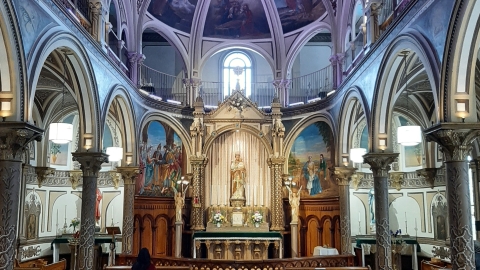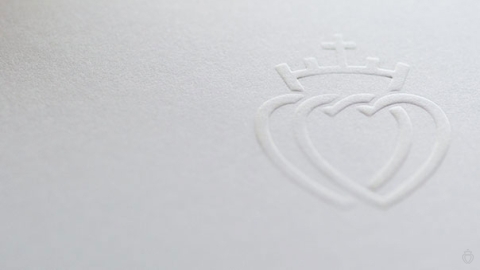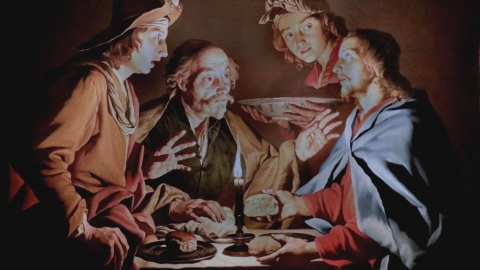Join online the Holy Trinity Sunday Mass - Saint-Césaire - 9:30 am EDT

Holy Trinity Sunday Mass from Saint-Césaire
This feast appeared locally in France and in Liege at the very beginning of the 10th century and seemed to be the logical conclusion of the Easter celebrations: after reliving the Redemption by Our Lord, the coming of the Holy Spirit, a special celebration in honour of the Trinity seemed to go without saying.
Initially, Rome categorically refused this feast: Alexander I (+1073) declared: "It is not the custom of Rome to dedicate a particular day to honouring the Most Holy Trinity, since strictly speaking it is honoured every day". Alexander III (+1181) will confirm this rejection. It was the French Pope John XXII, who in Avignon in 1334 accepted this feast, which was now widespread throughout his country. Since then it has definitively replaced the first Sunday after Pentecost, which was commemorated at Mass and at the Office until 1960.
Dom Guéranger explains: "All the tributes that the Liturgy pays to God have as their object the divine Trinity. The times are hers as eternity; it is the last term of our entire religion. Every day, every hour belongs to it. The feasts instituted in commemoration of the mysteries of our salvation always lead to it. Those of the Blessed Virgin and of the Saints are so many means that lead us to the glorification of the Lord who is one in essence and threefold in person. As for the Divine Office of Sunday in particular, it provides each week a specially formulated expression of adoration and service towards this mystery, the foundation of all the others and the source of all grace. It is therefore understandable why the Church has been so slow to institute a special feast in honour of the Blessed Trinity. The ordinary reason for the institution of feasts was totally lacking here. A feast is a monument to a fact which has been fulfilled in time, and whose remembrance and influence it is fitting to perpetuate: for from all eternity, before all creation, God lives and reigns, Father, Son and Holy Spirit. This institution, therefore, could only consist in establishing on the Cycle a particular day on which Christians would unite in a more direct way in the solemn glorification of the mystery of unity and of the Trinity in the same divine nature".



